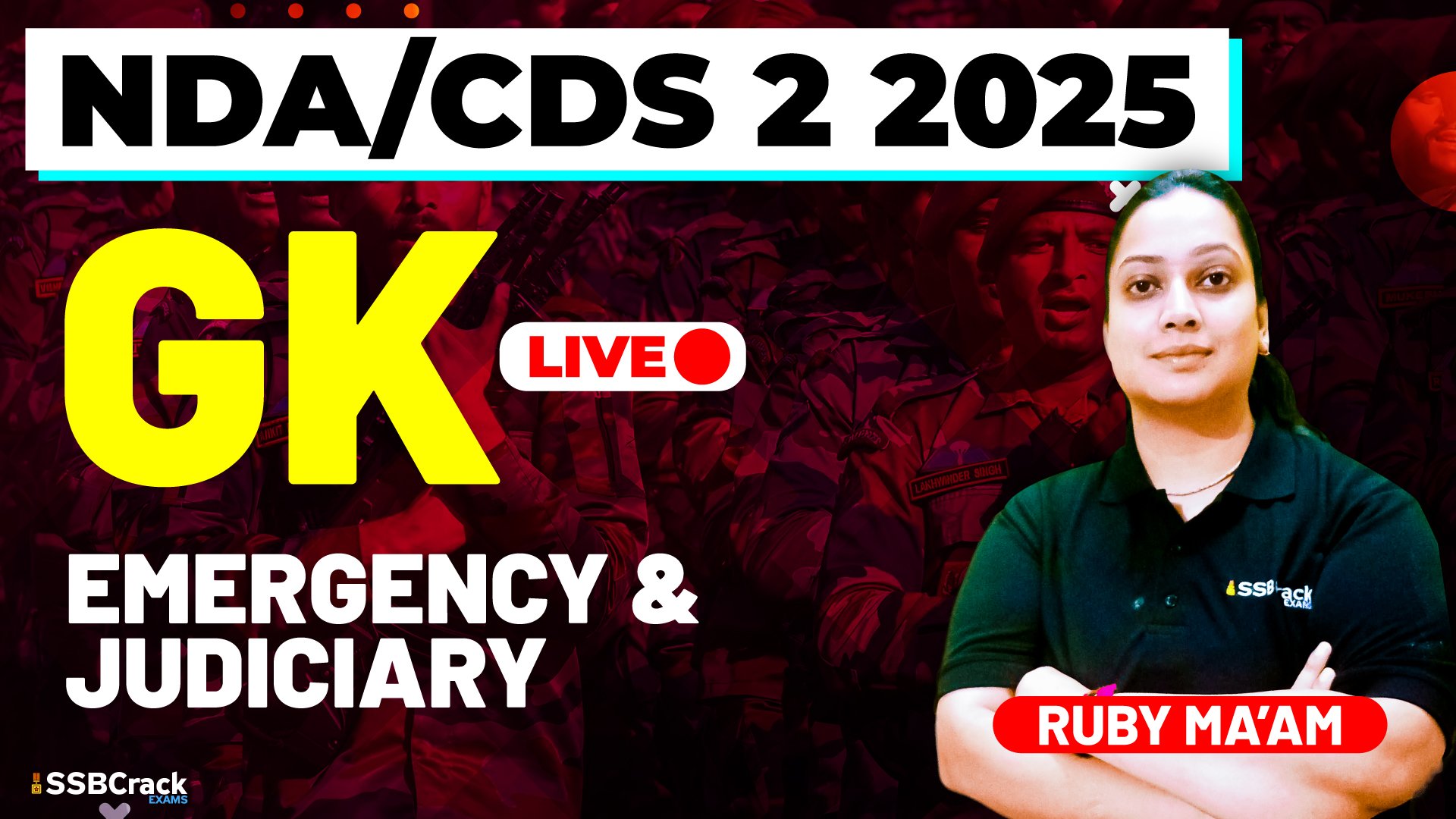Aspiring to join the Indian Armed Forces through the NDA (National Defence Academy) or CDS (Combined Defence Services) exams requires not only physical endurance and leadership qualities but also a solid grasp of India’s Constitution and political system. One such crucial topic in the Polity section is the Emergency Provisions of the Indian Constitution. Understanding Emergency Provisions is not only important from an exam perspective but also essential for future military leaders who may be called upon to serve the nation in times of crisis.
What are Emergency Provisions?
The Emergency Provisions in the Indian Constitution empower the President to take extraordinary steps in times of grave national crises. These provisions are detailed from Articles 352 to 360, and they enable the central government to deal effectively with unusual and dangerous situations.
There are three types of emergencies:
- National Emergency (Article 352) – Declared during war, external aggression, or armed rebellion.
- State Emergency or President’s Rule (Article 356) – Declared when the constitutional machinery fails in a state.
- Financial Emergency (Article 360) – Declared when there is a threat to the financial stability of the country.
Why are Emergency Provisions Important for NDA and CDS Aspirants?
1. Frequently Asked in Exams
Emergency provisions are a high-weightage topic in both NDA and CDS exams under the General Studies/Polity section. Questions are often asked directly or indirectly about their features, effects, and historical instances like the Emergency of 1975.
2. Understanding National Crisis Management
As future officers, NDA and CDS aspirants must understand how the government responds to national crises—be it war, internal disturbances, or economic instability. Emergency provisions outline the legal framework for such responses.
3. Leadership in Critical Times
The armed forces often play a vital role during emergencies—maintaining law and order, managing disaster relief, or defending the nation. Understanding the constitutional backing for such actions equips officers with better decision-making and strategic awareness.
4. SSB Interview Relevance
In the SSB Interview, candidates are assessed for their knowledge of current affairs, national issues, and constitutional values. A strong grasp of emergency provisions and their implications shows that you are not just exam-ready but also officer-like in thinking.
How to Study Emergency Provisions Effectively?
- Read NCERTs and Standard Books: Laxmikanth’s “Indian Polity” is highly recommended.
- Understand with Real Examples: Study historical instances like the 1975 Emergency, President’s Rule in various states, and the financial challenges of the 1991 crisis.
- Analyze the Impact: Know how these provisions affect Fundamental Rights, Federalism, and Centre-State Relations.
- Practice MCQs and PYQs: Go through previous year NDA/CDS questions to understand the pattern.
Final Thoughts
Emergency provisions are more than just constitutional clauses—they represent the legal backbone of India’s crisis response system. For NDA and CDS aspirants, knowing this topic thoroughly is essential for both academic success and professional competence.
Remember, you are preparing to serve in an institution that is the first responder in emergencies—whether it’s a natural disaster, a border conflict, or internal unrest. Understanding the constitutional powers and responsibilities during such times will make you a more effective, informed, and responsible leader.







